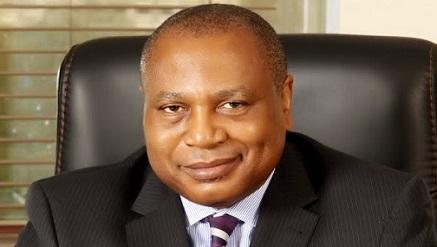Telecom
Phone on Wheels, Hello to Grave

The risks of talking on mobile phones, handheld or handsfree, whilst driving are grave but Nigerians have kept talking on wheels.
Cellphones are now more than just the latest electronic gadget; cellular telephones have become integral parts of everyone’s business and personal lives.
They are used to schedule appointments, call for assistance, report emergencies, and maintain contact with the office and family.
However, the convenience they offer must be judged against the hazards they pose.
Increased reliance on cellphones has led to a rise in the number of people who use the devices while driving.
Use of mobile phone while driving is common in Nigeria so are the dangers caused.
A recent study said that drivers are four times more likely to have accidents while talking on cellular phones.
There are many dangers associated with driving and cellphone use, including text messaging.
Drivers must take their eyes off the road while dialing. Second, people can become so absorbed in their conversations that their ability to concentrate on the act of driving is severely impaired, jeopardizing the safety of vehicle occupants and pedestrians.
The distraction of using a cell phone while driving is the same as fiddling with the radio, dealing with kids and pets, applying make-up, eating and so on.
Nigeria has banned the ban on use of mobile phone while driving but many have continued to ignore the law leaving tears, blood and avoidable damages in their wake.
Official statistics are hard to come by and are rarely reliable; it is generally believed that cell phone distraction causes more accidents in urban cities than drunk driving.
But the stark reality is that Nigeria’s road accident statistics is grim.
Federal Road Safety Commission (FRSC) estimates that some 5,000 people die in road accidents in the count every year.
Of course mobile phone on wheel and disregards for traffic rules are some of the major causes.
Other factors are impatience of drivers, over-speeding, driving under the influence of alcohol, driving against traffic, overloading, poor maintenance of vehicles and the use of bad tyres.
Many of the deaths are preventable and are caused by sheer recklessness.
To save further loss of lives due to irresponsibility of some drivers, it is important that there is strict enforcement of the law against driving and cellphone.
FRSC and other law enforcement agencies can enforce a ban on hand held cell phones as easily as they do with seat belts – they are very easy to notice.
But well meaning Nigerians must not wait for the law. They should start acting responsibility now and avoid putting other motorists and Nigerians in dangers.
The FRSC should embark on a nationwide public enlightenment exercise on the dangers of driving, smoking, talking and texting on the mobile phone.
Telecom
MTN @ Swish Fusion Summit, Showcases 5G Rollout Strategy

MTN Nigeria Communications Plc has joined other professionals across media, technology, and business gathered in Lagos for the Swish Fusion Tech and Media Summit.

Themed ‘Africa: Big Wins & New Breaks’, the summit drew thousands of attendees and featured more than 40 speakers exploring the intersection of innovation, regulation, and economic growth across the continent.
Among the sessions, MTN Nigeria presented a detailed look at the company’s ongoing 5G deployment efforts and its role in shaping enterprise infrastructure.
Njideka Jack, senior manager for Partnerships in MTN’s Enterprise Business Division, shared details of the investments, reiterating the company’s commitment to delivering high-quality 5G-powered services.
The company’s 5G rollout timeline began in 2022 with license acquisition from the Nigerian Communications Commission. In 2023, MTN moved into pilot testing and infrastructure investment.
By 2024, coverage had expanded to key cities and business hubs.
The company now plans to extend access to more underserved areas throughout 2025 while deepening collaboration with OEMs and regulators.
Beyond the rollout itself, Jack also spoke on the potential of private 5G networks for Nigerian enterprises.
With the ability to offer secure, high-speed, low-latency connectivity, these networks are increasingly being adopted in manufacturing, healthcare, education, and logistics sectors.
The summit’s broader agenda reflected a similar sense of urgency around Africa’s digital future.
Panels and breakout sessions tackled topics ranging from mobile-first product design and regulatory frameworks to the rise of AI in content creation and the realities of funding early-stage tech ventures on the continent.
Speakers from companies like Jumia, Stears and local startups provided perspectives on both the barriers and breakthroughs in building scalable African solutions.
The sessions also sparked conversations about how African businesses are adapting to consumer behaviour shifts and infrastructure limitations.
Telecom
PAT Taps Osi as CEO

Pan African Towers (PAT), a Nigerian infrastructure provider serving 9mobile and Spectranet, has appointed Echezona Osi as chief executive officer.

Echezona Osi
Adefolarin Ogunsanya, company’s, board chairman, explained in a statement that Osi would succeed Oladipo Badru, whose tenure lasted nine months in acting CEO position. Osi has more than 28 years of experience in the telecommunications sector across various regions of Africa.
Prior to his appointment as CEO, he had served as the head of network deployment at Airtel Nigeria, operations director and chief technical information officer at MIC Tanzania, chief technology officer roles at IPT PowerTech Nigeria, Rhino Niger Networks and Biswal Nigeria.
He obtained a degree in electrical/ electronic engineering from the University of Benin and a postgraduate diploma in data science and business analytics from the University of Texas.
Telecom
NCC Introduces N10m Licence Fee for Bulk SMS Service

Companies sending bulk international text messages, also known as Application-to-Person (A2P) messages, will now have apply for a licence that costs N10 million.

This is part of new rules introduced by the Nigerian Communications Commission (NCC) aimed at cleaning up the system, fighting fraud, blocking spam messages and stopping money from leaving the country unchecked.
These A2P messages are the kind customers get from banks, online stores, hospitals and political campaigns, automated texts sent from apps to their phones.
According to the commission, the bulk international text message system has been poorly regulated, allowing misuse and invasion of privacy.
“The International SMS Service Ecosystem in Nigeria has not been fully brought under regulatory control. It has been observed that the excessive use of the Short Message Service has led to fraud, spam and illegal activities,” the NCC said.
The regulator warned that without action, the problem would worsen as more people use mobile phones and digital services.
To solve this, the NCC is creating a central platform, or gateway, through which all international bulk text messages must pass through.
The agency said this would help to monitor messages in real time, ensure proper fees are paid, and make sure the money stays in Nigeria where it can contribute to the economy.
As part of the incoming change, service providers must follow strict rules, including strong data protection, spam filters, and message encryption.
Also, they must also work with local mobile networks and make sure all messages come from a verified sender
The NCC warned that any message without a proper sender ID will be blocked and not delivered to users.
To protect users from unwanted texts, the new rules say companies must get clear permission before sending any promotional content.
The rule also says people must also be able to choose whether they want to receive such messages or not.
Companies are now required to keep records of all messages for at least six months and must clearly state all charges involved.
The NCC said fees for help requests, cancellations, or service info must be transparent and not include hidden charges.
The commission will issue licences to several providers to encourage healthy competition but may limit new licences if needed.
Only companies that show they can stop fraud and safely deliver messages will be allowed to operate. They must also regularly report their message traffic and finances to the NCC.
It warned that any company that breaks the rules risks getting fined, suspended, or having its licence revoked.
Offences like charging illegal tariffs, ignoring security rules, or avoiding taxes will be punished, the NCC said.
The commission added that the new rules follow the Nigerian Data Protection Act 2023 and support the federal government’s goal of strengthening cybersecurity and controlling Nigeria’s digital space.
The framework will also be reviewed from time to time to keep up with new technology and market trends.

 Broadcasting2 days ago
Broadcasting2 days agoNigeria Week Ahead: Inflation, Oil and Naira in focus

 News2 days ago
News2 days agoEFCC: Accusations Against Our Chairman Are Baseless and Misleading

 Telecom1 day ago
Telecom1 day agoMTN Nigeria Targets $1Bn Cloud Market with Largest Modular Data Centre

 Telecom1 day ago
Telecom1 day agoNCC Introduces N10m Licence Fee for Bulk SMS Service

 E-Business1 day ago
E-Business1 day agoFirm Highlights Top Risks of Quantum Computing

 General News1 day ago
General News1 day agoAM Best Reaffirms Stable Outlook for Cyber Insurance Market

 Telecom1 day ago
Telecom1 day agoPAT Taps Osi as CEO

 General News1 day ago
General News1 day agoBurna Boy Distances Himself from Meme Coin, Labels Crypto as Fraud



























